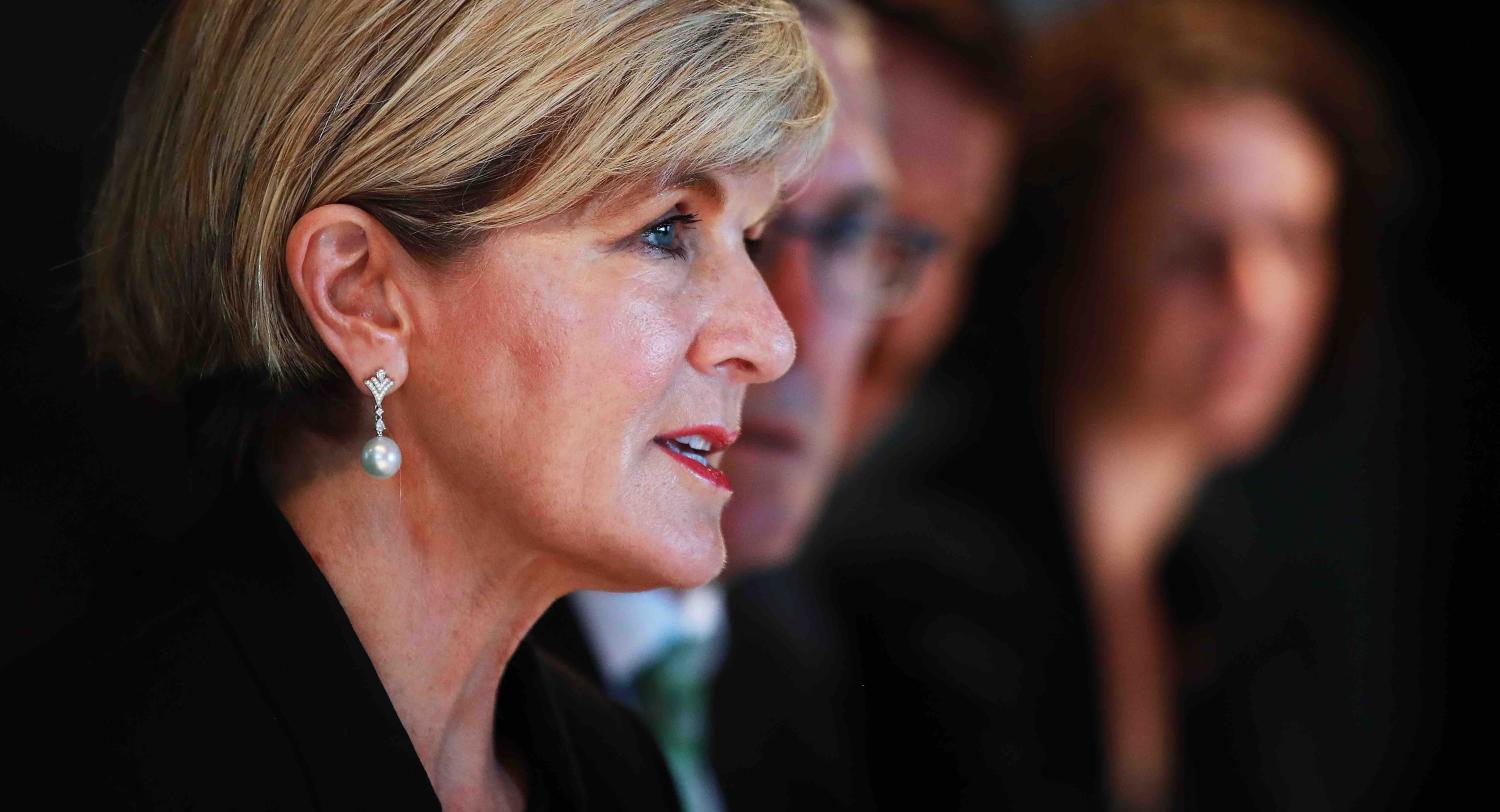Foreign Minister Julie Bishop delivered a speech on Monday evening at King’s College London, outlining to a British audience how she sees Australia’s priorities. While crafted in that particular Anglo-Australian context, it is probably Bishop’s most important foreign policy speech since her Fullerton lecture in Singapore last March, and the first major address since the launch of the Foreign Policy White Paper in November. Looking over the copy of her remarks on her website, the speech provides some interesting pointers on how the Australian Government’s foreign policy has evolved within that fairly short period of time.
- Bishop explained the Indo-Pacific as Australia’s “region of priority”. This refocusing of Australia’s strategic lens recasts Australia–UK cooperation in a more regional, geopolitical context. Canberra wants the UK, as “one of the chief underwriters of the international rules-based order”, do more to uphold the rules-based order in the Indo-Pacific – economically, diplomatically, and militarily. In an interview ahead of her speech, Bishop noted that the UK “is planning to conduct freedom of navigation exercises through and around the South China Sea. This is important to Australia – to keep the seas and skies in our region open”.
- No surprises that China’s rise as an economic and military power featured prominently in the speech, as “the most marked development in our region”. Bishop avoided direct criticism of Beijing, suggesting Australia is still trying to mend strained relations. But it is hard not to read China into the Foreign Minister’s warnings about countries using economic coercion to “achieve narrow strategic and political objectives”, “ignoring international law and rules for narrow advantage”, and imposing “unfair agreements on less powerful nations”.
- Bishop’s treatment of the US marks a pronounced shift from her Fullerton lecture delivered in Singapore less than a year ago (on which I commented here). Back then, Bishop seemed confident that the US would “play an even greater role as the indispensable strategic power in the Indo-Pacific”. In London, she sounded much more ambivalent about the role of the US. In fact, the US isn’t mentioned substantively until more than halfway into her speech. Bishop matter-of-factly comments on the continuing centrality of the US to Indo-Pacific security, but introduces a striking note of doubt about the variable quality of America’s bilateral security commitments, many of which are “not formalised”. Confidence in American leadership is replaced by concern about “populist leaders” beating the drum of protectionism.
- The Foreign Minister also arguably damns ASEAN with faint praise. The one passing reference to ASEAN is as an example of regional multilateral institutions that “do not impose obligations or commitments on … members who are free to negotiate their own arrangements”. There was no mention of the East Asia Summit, despite its lofty description in the Foreign Policy White Paper as “the region’s premier political and security forum”. In spite of the looming Australia-ASEAN leaders’ summit in Sydney, this leaves the distinct impression that, in Canberra’s view, regional multilateral institutions play a marginal role in upholding the rules-based order. Mind you, the recently revived Australia-India-Japan-US quadrilateral wasn’t mentioned either.
- Mention of the UK’s interest in the Trans-Pacific Partnership will draw some attention. But this may only be to deflect British disappointment from Bishop’s careful caveat attached to the UK’s primary economic objective of a bilateral free trade agreement with Australia, “when the circumstances are right”.
- The Theresa May government will be happy that Bishop included a shout-out to the Commonwealth, which is receiving more attention in London as a platform for delivering the UK’s post-Brexit foreign policy ambitions. Privately, there is scepticism among Australia’s senior policymakers about the Commonwealth’s potential for reinvention; except for in the South Pacific, which has 11 Commonwealth members and where Bishop notes opportunities to “enhance joint engagement” with the UK to deliver aid.
- Last, but not least, there is an intriguing reference to “six of the world’s nine nuclear weapons nations” being “in our region”. Now, perhaps I’m stretching here, but this could be read as preparing the ground for recognising North Korea’s de facto nuclear status in future. It suggests a potential shift in Australia’s thinking from framing North Korea’s nuclear program as a problem of proliferation, to one primarily defined by deterrence. While the Foreign Minister goes on to say that only North Korea directly threatens others with “military strikes” in the Indo-Pacific, it should also be noted that the Trump administration has very publicly kept its military options on the table.

